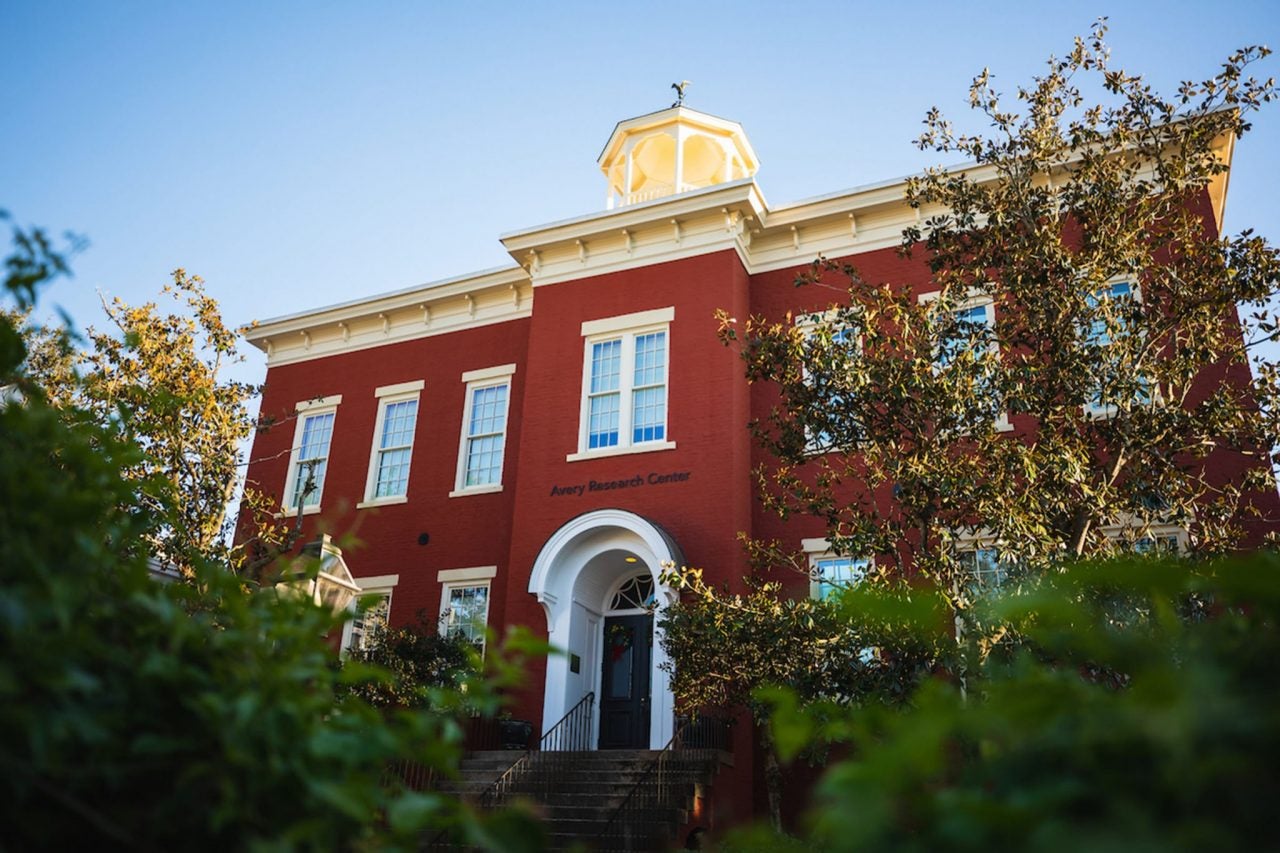History cannot be remembered if it’s not preserved. And sometimes maintaining the nuts and bolts of the past is just as important as memorializing the events themselves.
After being closed for two years, the Avery Research Center for African American History and Culture reopened this January renewed and reinvigorated to continue its mission of collecting, preserving and elevating the history of the African diaspora.
Originally constructed in 1867 as the Avery Normal Institute, the first accredited secondary school for African Americans in Charleston, the 153-year-old building, which is located a few blocks west of campus on Bull Street, underwent a major, $2.3 million renovation. Repairs included replacing the HVAC systems, windows and roof; restoring the soffit, parapets and exterior wall system; and adding new shelving for better storage of all the artifacts and manuscripts.

Daron-Lee Calhoun II, the Avery’s manager and director of public programming and outreach.
“It’s absolutely a new chapter,” says Daron-Lee Calhoun II, the Avery’s facilities manager and director of public programming and outreach, adding the center can now better organize and maintain its archival material. “Now we know what we can bring in and we can be more proactive in acquiring new collections.”
Caring for – and growing – the Avery Research Center’s collection is essential to sharing the history of the communities it serves.
“As one of the few archives focused on collecting, preserving and making available manuscripts and artifacts documenting African American history, the Avery is an important repository for scholars, students and genealogists,” says John White ’99 (M.A.), dean of libraries, which oversees the center.
And ensuring the Avery’s structural integrity was a priority, especially given the building’s use as a community space and venue for lectures, symposia, film screenings and cultural events.
“The renovation and reopening of the building and the archives at Avery is an important step for the College’s efforts to support more inclusive, multicultural examinations of regional history and culture,” says White.
Indeed, like a garden, history must be tended to in order to endure.

Interior renovations at the Avery Research Center. (Photos by Mike Ledford)




